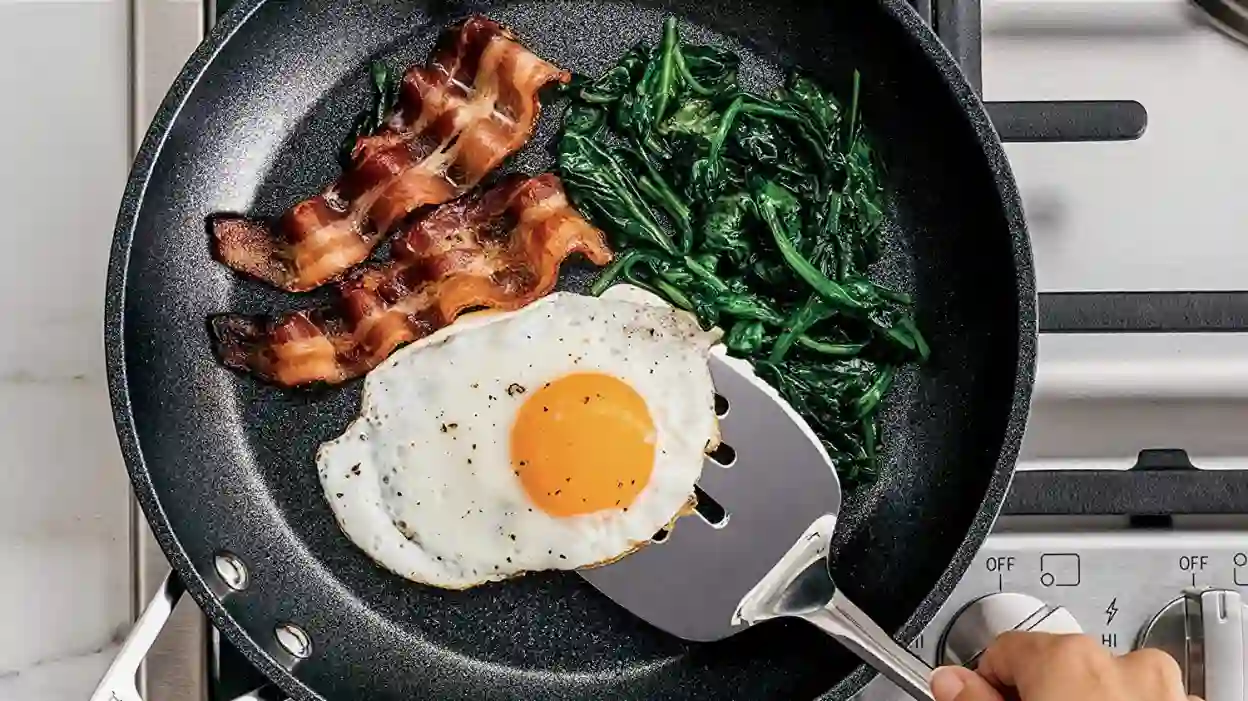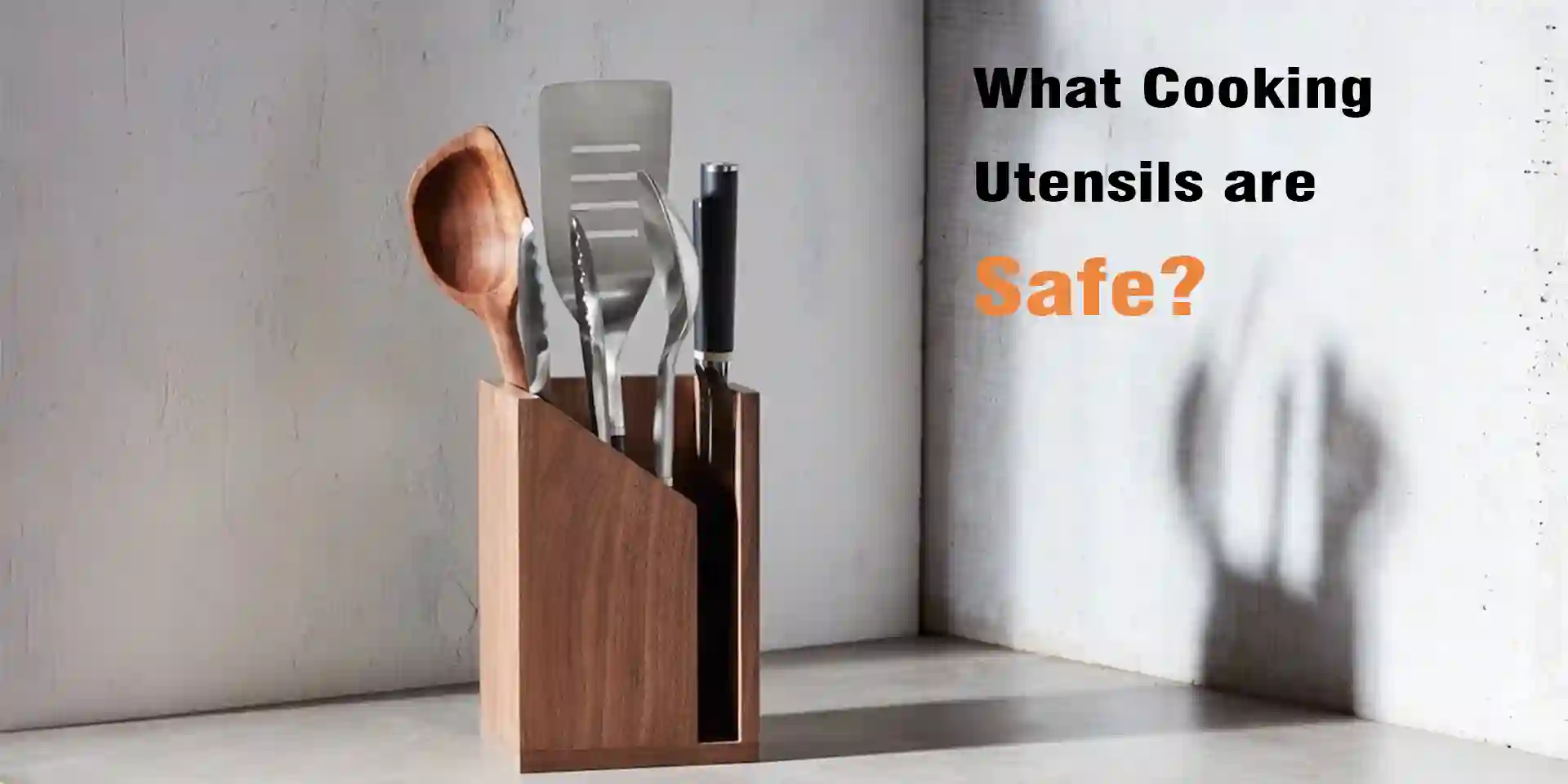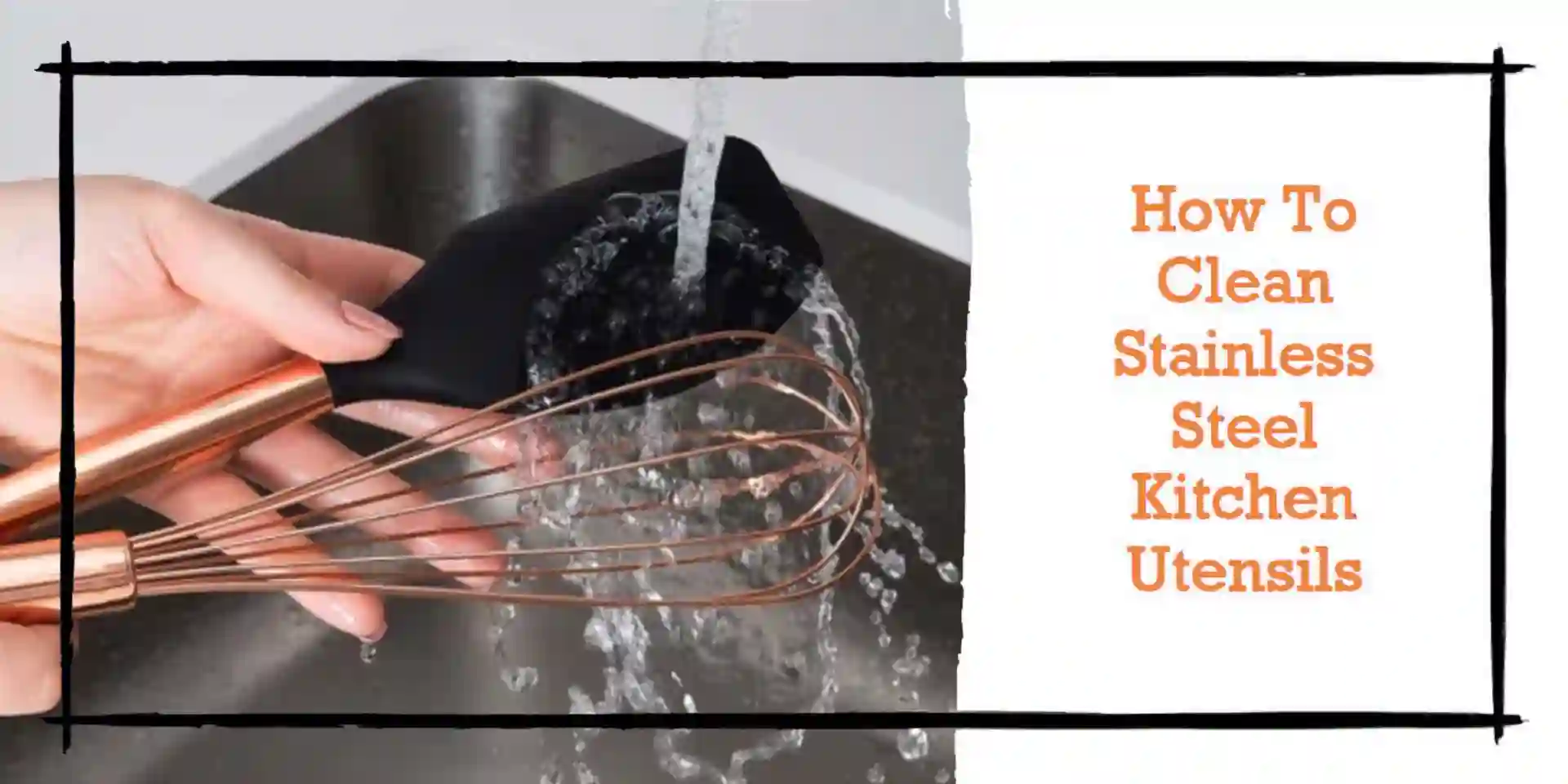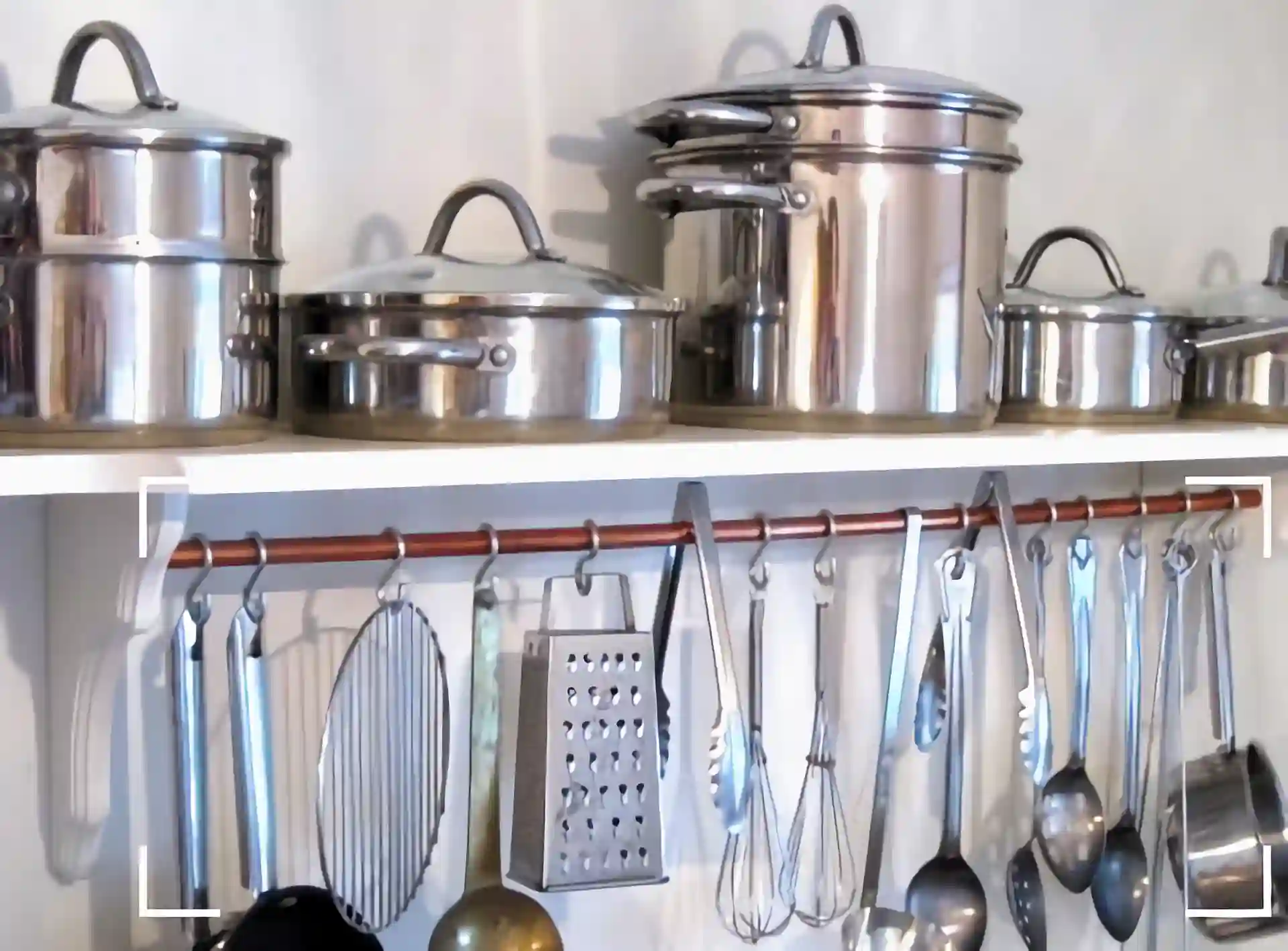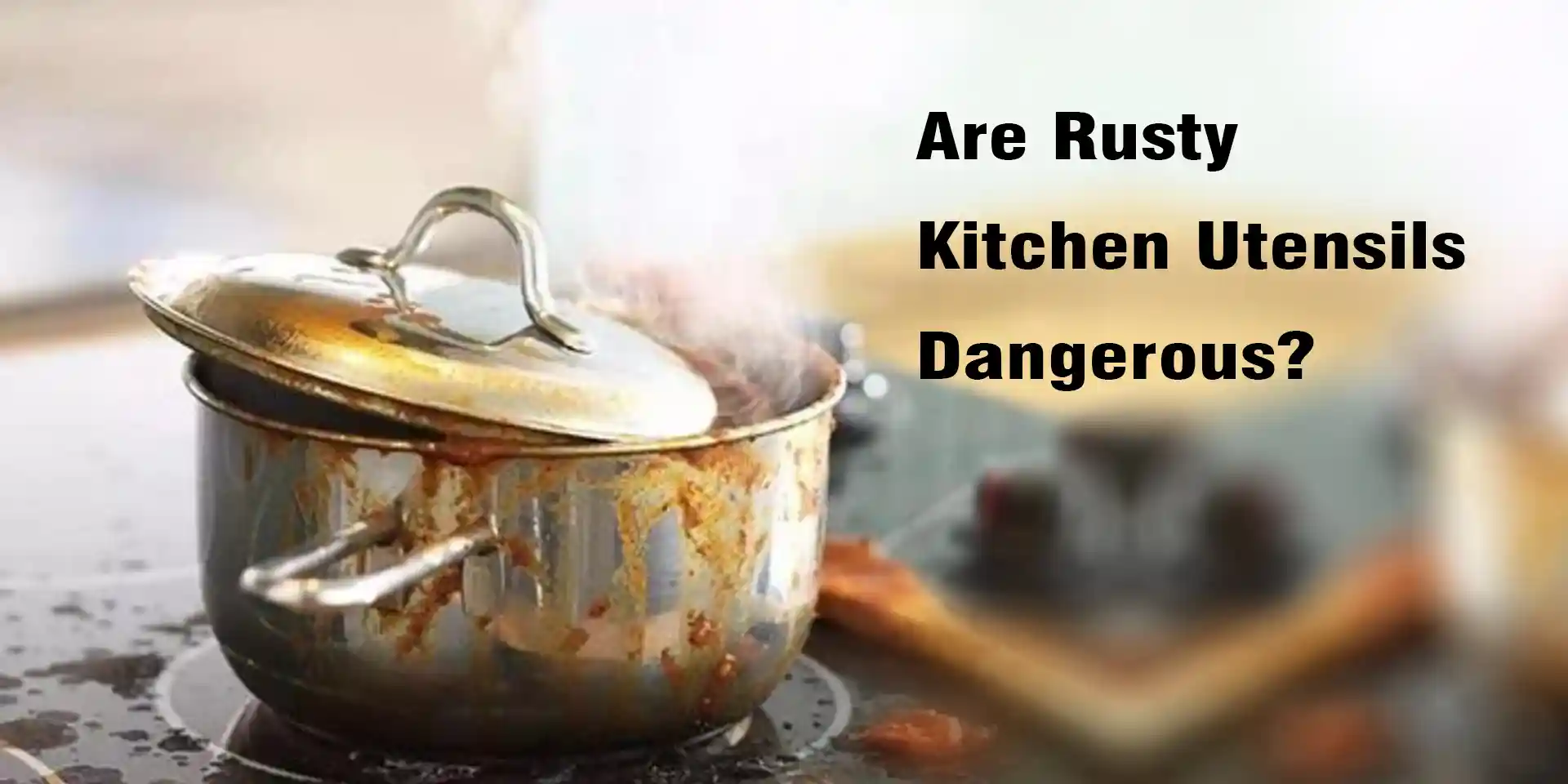Why You Shouldn’t Use Metal Cooking Utensils on Nonstick Pans?
Nonstick pans are a game changer in the kitchen. They make cooking easier and cleaning a breeze. Studies show that nearly 70% of home cooks prefer nonstick pans for everyday meals. But with great convenience comes great responsibility! Choosing the right cooking utensils is crucial to maintaining your nonstick cookware’s performance. One of the biggest mistakes you can make is using metal cooking utensils on these delicate surfaces.
Understanding Nonstick Pans
Nonstick pans are coated with a special layer that keeps food from sticking, making them ideal for frying eggs, pancakes, and more. The coating, often made from polytetrafluoroethylene (PTFE) or ceramic, allows for easy cooking and cleaning. While these materials are great for cooking, they are not as tough as they might seem. Over time, the nonstick coating can wear away if not treated properly. They also come with specific care requirements, especially regarding the cooking utensils used with them.
Using metal cooking utensils on these surfaces is a surefire way to damage the coating. Metal can scratch and chip away at it, leading to reduced performance and potential health risks. A damaged nonstick surface means your food may stick, making cooking and cleaning much more difficult.
The Appeal of Metal Cooking Utensils
Metal cooking utensils are popular for their durability and effectiveness. Typically made from materials like stainless steel and aluminum, they are sturdy and can withstand high heat, making them great for a variety of cooking tasks. From spatulas to ladles, metal kitchen tools can handle tough jobs. However, this durability comes at a cost when used with nonstick pans.
Risks of Using Metal Cooking Utensils on Nonstick Pans
1. Scratching and Chipping
Metal cooking utensils can easily scratch the nonstick surface. Even a single scrape can compromise the integrity of the coating. Once the nonstick layer is damaged, food is more likely to stick, making cooking less enjoyable. You might find yourself scraping and scrubbing, which defeats the purpose of having nonstick pans!
2. Health Concerns
If the coating chips away, you might unintentionally ingest small particles. Modern nonstick coatings are generally safe, but why take the chance? Protecting the integrity of your cookware should be a priority.
3. Shortened Lifespan of Nonstick Pans
Investing in good-quality nonstick pans makes sense for many home cooks. However, if you consistently use metal cooking utensils, you’re likely to shorten their lifespan. Over time, this leads to additional costs as you replace pans more frequently.
4. Warranty Void
Many nonstick cookware brands specify that using metal cooking utensils on nonstick cookware will void the warranty. If you encounter issues, you might find yourself without any recourse for repairs or replacements.
Safe Alternatives to Metal Cooking Utensils
Fortunately, there are plenty of safe alternatives to metal cooking utensils. Consider the following options:
Silicone Cooking Utensils: Heat-resistant and flexible, silicone cooking utensils perfect for nonstick surfaces. They won’t scratch or chip the coating and come in a variety of shapes and sizes. Plus, they’re easy to clean!
Wooden Cooking Utensils: Wooden cooking utensils are gentle on nonstick surfaces. They provide a sturdy option for stirring and flipping without the risk of scratching. Just remember to hand wash them to keep them in good shape.
Bamboo Cooking Utensils: Bamboo cooking utensils are a sustainable option that works well with nonstick pans. They’re lightweight, strong, and won’t cause any damage to your pans.
Plastic Cooking Utensils: High-quality plastic cooking utensils can also be a safe choice for nonstick surfaces. Look for heat-resistant options to ensure they won’t melt during use.
Tips for Maintaining Your Nonstick Pans
Proper care is essential for extending the life of your nonstick pans. Here are some tips:
Use the Right Cooking Utensils: As discussed, always opt for silicone, wood, or plastic cooking utensils. Avoid metal at all costs!
Gentle Cleaning: After cooking, let your nonstick pan cool down before washing. Use a soft sponge or cloth with mild detergent. Avoid abrasive cleaners that can damage the coating.
Avoid High Heat: Cooking on high heat can degrade the nonstick surface over time. Stick to medium or low heat for better results and longevity.
Store Properly: To prevent scratching, store your nonstick pans carefully. Use pan protectors or soft cloths between stacked pans.
Follow Manufacturer Instructions: Always read the care instructions provided by the manufacturer. This can give you specific guidelines for maintaining your cookware.
When to Replace Nonstick Pans
Even with the best care, nonstick pans won’t last forever. Look for signs that it’s time to replace your cookware:
Visible scratches or chips: If you notice significant wear on the nonstick surface, it’s best to replace the pan.
Food begins to stick: If your nonstick pan starts to lose its ability to keep food from sticking, it’s a sign that the coating is compromised.
Warping or discoloration: These can indicate that the nonstick pan is no longer safe for use.
Metal Cooking Utensils: Best Used with Other Pans
While metal cooking utensils are not suitable for nonstick pans, they shine in the context of stainless steel or cast iron cookware. If you love using metal cooking utensils, consider pairing them with these types of pots and pans.
At SHUANGYI, we manufacture high-quality stainless steel cooking utensils designed to complement your cooking needs. Our products are crafted for durability and functionality, ensuring you have the right tools for your stainless steel or cast iron cookware.
Conclusion
Using metal cooking utensils on nonstick pans can lead to a host of issues, from scratching to health risks. By choosing the right cooking utensils and following proper care guidelines, you can enjoy hassle-free cooking and prolong the life of your nonstick pans. So next time you reach for that metal spatula, think twice! Protect your investment and make your cooking experience enjoyable.

